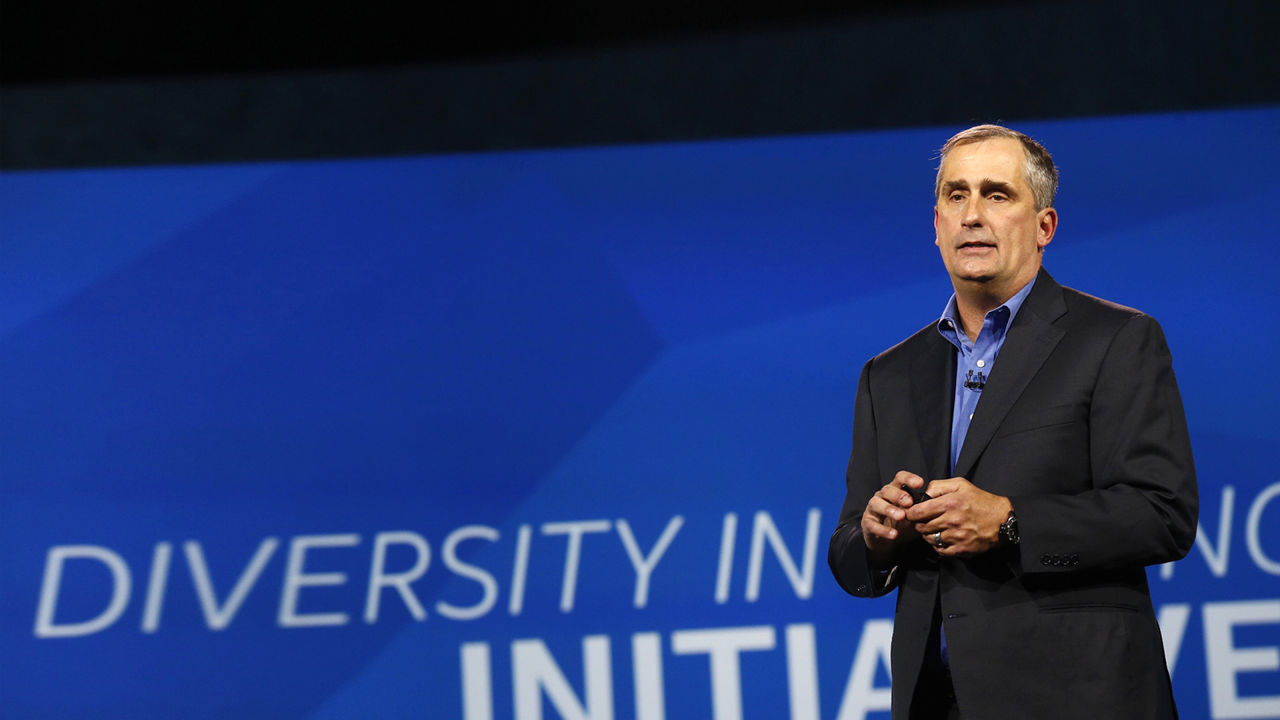
08 Feb MINORITY LEADERS ON WHAT INTEL’S $300 MILLION PLEDGE WILL MEAN TO TECH DIVERSITY
There is a lot of lip service given fixing Silicon Valley’s diversity problem. But Intel CEO Brian Krzanich promised a bold move last week when he announced that his company was pledging $300 million to be used over the next three years to help eradicate the lack of diversity in the tech space.
Krzanich’s announcement addressed both his company’s internal diversity issue—Intel’s workforce is 76% male and just 4% black and 8% Latino—and the greater issue for Silicon Valley at large. He said, by funding engineering scholarships, supporting historically black colleges and universities and other means yet to be specified, that he hopes “to reach full representation at all levels” in the next five years. The actual number is undefined, he says it would represent a gender and racial breakdown equal to the number of qualified workers in the field.
But is investing a large sum of money the answer to more ethnic and gender diversity? Ultimately yes, says Shellye Archambeau, a tech industry veteran currently serving as CEO of MetricStream, a Silicon Valley-based governance, risk and compliance firm who has been recognized as a top female and African American leader in the tech space.
Shellye ArchambeauPhoto: via Wikimedia Commons
“The Intel investment will not fix the world, but it will make an example of what can be done,” Archambeau told Fast Company. “It almost doesn’t matter if it’s $200 million or $400 million. By putting a specific target that they’re trying to achieve, by putting money behind it, it’s going to make them hold themselves accountable to make some changes. I hope others will follow their lead.”
Laura Weidman Powers, cofounder of CODE2040, an organization created to help blacks and Latinos to enter the tech workforce, said she was “thrilled.” Powers was brought to CES by Intel to speak on a panel about diversity, unaware that she’d be present for Krzanich’s announcement.
“I was super excited not to just be doing the panel discussion, but that this was a focal point of a panel at CES,” Powers told Fast Company. She pointed out that CES, a massive annual event, is a pretty homogenous, and the fact that diversity was taking the stage, front and center, was a big deal.
“We started CODE2040 almost three years ago, and when we started the organization, no one was really talking about diversity in the tech space,” she said. “Now that’s totally changed.”
Her cofounder is Tristan Walker, a major African American entrepreneur in Silicon Valley and founder of Walker & Company Brands, who was featured in Fast Company’s December 2014/January 2015 issue. Powers and Walker recognized that there were barriers to entry for minorities in tech, and that’s why Intel’s pledge to even the playing field is so important to the work they do.
Demystifying what these majors and areas of study are would really help.
Archambeau, who began her career in tech at IBM in the 1980s long before diversity was discussed, points out that a major barrier to entry for minorities is a lack of education about what it means to work in tech—in other words, it’s not just coding.
“Encouragement needs to start early. If I had understood in high school that what engineers do is basically solve problems, I might have actually been into being an engineer. I thought that’s just what the science guys did,” she said. “Demystifying what these majors and areas of study are would really help.”
Archambeau and Powers agree that this problem isn’t a lack of available talent among women, blacks and Latinos, an excuse that many executives responsible for hiring use as an excuse for their lack of diversity. They also say it extends beyond getting a bachelor’s degree in computer science, but is more of an access issue—company’s access to talent, and conversely, talent’s access to them.
They throw up their hands and say ‘I don’t control the pipeline.’ But it’s more complex than that.
“It’s more than just having degrees. How do you get considered part of that talent pool?” Archambeau said. “Some minorities don’t even get the opportunity to be considered because they’re not even in the mix to compete.”
She points to work that VC firm Andreessen Horowitz has done to help to promote diversity in the valley and create networking opportunities for minorities. “I personally can think of half a dozen individuals who have benefited [from their work] and say they’re making a difference.”
“Certainly we could benefit from more people of color, women, everybody, going into computer science,” Powers said. “People blame it on the pipeline problem. They throw up their hands and say ‘I don’t control the pipeline.’ But it’s more complex than that.”
And though she’s excited for the possible impact that Intel’s $300 million pledge could have, Powers was quick to point out that it’s not just on them to revolutionize the tech industry’s diversity standards. “It’s not their problem. It’s our problem. It’s everybody’s problem.”


No Comments